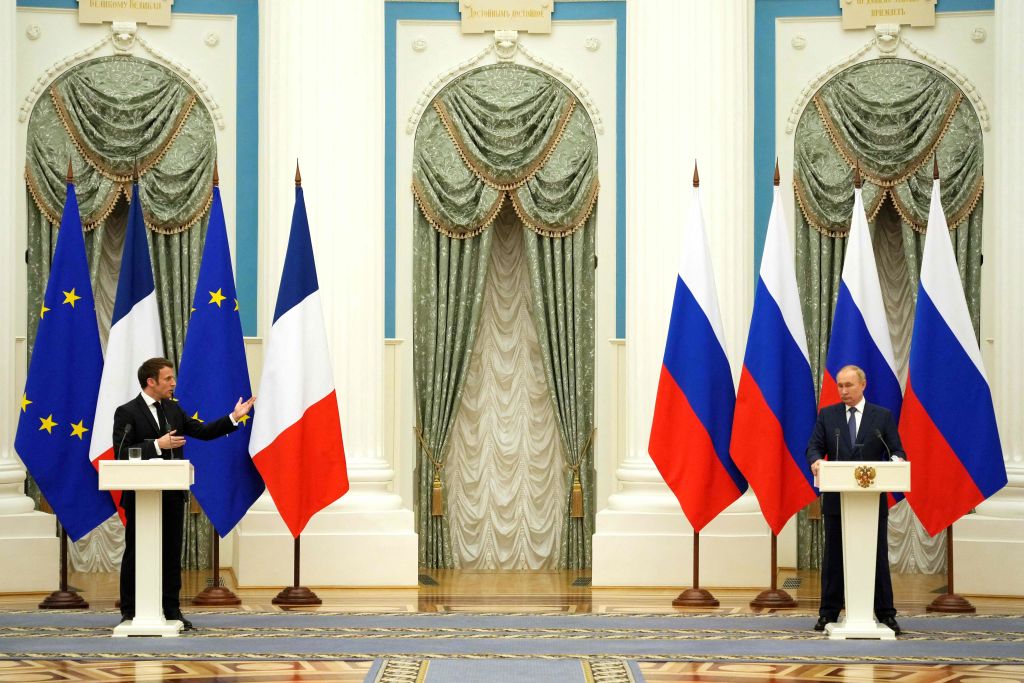After meeting with Putin, Macron says the 'risk of destabilization is increasing'


A free daily email with the biggest news stories of the day – and the best features from TheWeek.com
You are now subscribed
Your newsletter sign-up was successful
French President Emmanuel Macron and Russian President Vladimir Putin met in Moscow on Monday, but after five hours of negotiations, there was no breakthrough on the Russia-Ukraine crisis.
"Right now the tension is increasing and the risk of destabilization is increasing," Macron said. "Neither Russia, nor the Europeans, want chaos or instability, when nations have already suffered from the [COVID-19] epidemic. So we need to agree on concrete measures." Macron added that he doesn't "believe in spontaneous miracles. There is lots of tensions, nervousness."
It's estimated that Russia has about 140,000 troops along the border with Ukraine and in Belarus, and on Monday, Pentagon spokesman John Kirby said Putin has "added to his force capability" in those areas. U.S. officials believe that Russia has in place more than 70 percent of the soldiers needed to launch an invasion of Ukraine, and some analysts believe Putin is only entertaining Western leaders in order to buy more time to prepare, The Guardian reports.
The Week
Escape your echo chamber. Get the facts behind the news, plus analysis from multiple perspectives.

Sign up for The Week's Free Newsletters
From our morning news briefing to a weekly Good News Newsletter, get the best of The Week delivered directly to your inbox.
From our morning news briefing to a weekly Good News Newsletter, get the best of The Week delivered directly to your inbox.
Putin has made several security demands of NATO and the United States, including that Ukraine never be admitted into NATO. Macron said on Monday that NATO's open door policy is essential for Europe; Putin replied that it is only good for the United States.
While he didn't go into detail about what was privately talked about, Putin did say it is possible for Russia to consider "a number" of Macron's "proposals and ideas ... in order to lay a foundation for our further steps." Macron will head to Kyiv on Tuesday to meet with Ukrainian President Volodymyr Zelensky, and he said he'll call Putin afterwards to brief him on their discussion.
A free daily email with the biggest news stories of the day – and the best features from TheWeek.com
Catherine Garcia has worked as a senior writer at The Week since 2014. Her writing and reporting have appeared in Entertainment Weekly, The New York Times, Wirecutter, NBC News and "The Book of Jezebel," among others. She's a graduate of the University of Redlands and the Columbia University Graduate School of Journalism.
